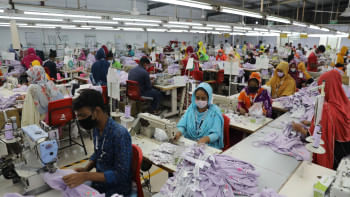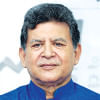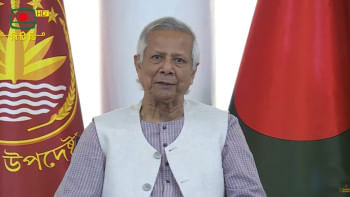What’s blocking the reforms in Bangladesh?

Continuous reform is vital for sustainable progress. Over the years, Bangladesh, a developing economy, has struggled to implement necessary economic, political, administrative, judicial and social reforms. While significant economic reforms in the 1980s and early 1990s laid the groundwork for a market-oriented economy, major structural reforms have stalled since then. In contrast, Southeast Asian countries like Vietnam have achieved remarkable progress through continuous reform, such as the 1986 "Doi Moi" policy, which boosted productivity, investment, and trade.
Economic reforms in the 1980s and 1990s spurred private sector growth and investment, but recent stagnation in domestic and foreign investment, banking sector weaknesses, and limited tax collection highlight the need for structural changes in banking, revenue systems, and trade policies.
Political reform is vital for democratic development, electoral transparency, and internal party democracy, but corruption and political reluctance hinder progress. Without it, good governance and sectoral reforms remain challenging. Administrative reform is key to improving bureaucratic efficiency, transparency, and accountability. Digitalising operations and reducing complexities can make governance more citizen-friendly.
Judicial reform is necessary to address delays, backlogs, and corruption, ensuring swift justice and judicial independence to restore public trust. Social reform, including education, healthcare, labour market improvements, poverty alleviation, and the empowerment of women and marginalised groups, is fundamental for inclusive growth. Comprehensive reforms across these sectors are imperative for Bangladesh's long-term progress.
" layout="left"]Why reform is difficult in Bangladesh
Implementing the desired reforms in Bangladesh is particularly challenging due to the complexities of political and social realities. Reluctance of the major political parties, influence of vested interest groups, and weak demand for reform from society play crucial roles in obstructing reform efforts. Although policy reform initiatives have been undertaken in the country at various times, their structural and effective implementation have not taken place. The existing political culture and the centralised nature of power are significant barriers to reform.
The lack of internal democracy within major political parties prevents them from being genuinely interested in implementing democratic and governance reforms at the national level. Party leaders' dominance, hereditary leadership, and irregular decision-making processes hinder political reform. Furthermore, elite groups benefiting from the existing system oppose reform. Political parties often promise reforms while in power, but fail to take concrete steps for implementation. Meanwhile, when in opposition, they use reform demands as a political strategy, which they do not follow through on once in power. As a result, there is a clear lack of political will for long-term structural changes.
Another major reason for the stagnation of the reform process is the influence of vested interest groups. Political and business elites, along with bureaucratic opponents of reform, benefit from the current system and resist change. These groups actively work against reform efforts to preserve their privileges. For instance, attempts to increase transparency and accountability in the banking and taxation sectors face resistance from influential individuals, as such reforms could limit their irregular financial activities and special benefits. Similarly, efforts to reform tariff policies, government subsidies, and procurement processes are often obstructed by powerful groups using their political and administrative influence.
Public opinion and societal demand for reform are also relatively weak in Bangladesh. A strong societal demand for reform has not yet been well-organised, which reduces pressure on the government and policymakers to initiate change. Although there is public dissatisfaction with corruption, inefficiency, and a lack of transparency in various sectors, this sentiment has not been mobilised into a collective movement. The active role of the media, civil society, and educated citizens is crucial in this process. However, their efforts have so far failed to exert sufficient pressure on policymakers for reform.
Given the lack of strong internal pressure for reform, much of the impetus for past reforms has come from external actors such as international development organisations and international buyers, for example, in the case of the ready-made garment (RMG) industry.
Civil society, conscious citizens, and the reformist factions within political parties believe that the tenure of a caretaker or interim government presents a favourable opportunity for implementing reform initiatives. They hope that such a government will swiftly undertake and execute key reform measures. However, resistance from anti-reform bureaucrats within the administration, the absence of a clear roadmap, and the lack of sustained, strong and unified public pressure in favour of reforms often slow down or stall these initiatives.
Moreover, the lack of genuine commitment to reforms among political parties renders the future of caretaker or interim government-initiated reforms uncertain. After returning to power, these parties often discontinue previous reform efforts or modify them to align with their political interests, ultimately failing to ensure the continuity of the desired reforms.
" layout="left"]There is no alternative to reform
Growth without reform is not sustainable in the long run, as economic development depends not only on increased production or income but also on effective institutions, good governance, and inclusive policies. Without structural reforms, income and wealth inequality may rise, corruption and administrative inefficiencies may worsen, and the investment climate may deteriorate. As a result, even if economic growth accelerates temporarily, it fails to ensure long-term public welfare. To build a prosperous, poverty-free and equitable society, it is crucial to establish a strong foundation through economic, political, administrative, judicial and social reforms.
A sustainable and inclusive society requires reform-oriented political leadership willing to implement structural changes for long-term development. However, vested interest groups often seek to obstruct the reform process to maintain their influence, making social and civic pressure vital for successful implementation. If a strong social movement in favour of reform emerges, it will be possible to counter vested interests and help Bangladesh move forward on its desired path of development.
Dr Selim Raihan is professor in the Department of Economics at the University of Dhaka and executive director of the South Asian Network on Economic Modeling (SANEM). He can be reached at [email protected].
Views expressed in this article are the author's own.
Follow The Daily Star Opinion on Facebook for the latest opinions, commentaries, and analyses by experts and professionals. To contribute your article or letter to The Daily Star Opinion, see our guidelines for submission.

 For all latest news, follow The Daily Star's Google News channel.
For all latest news, follow The Daily Star's Google News channel. 










Comments